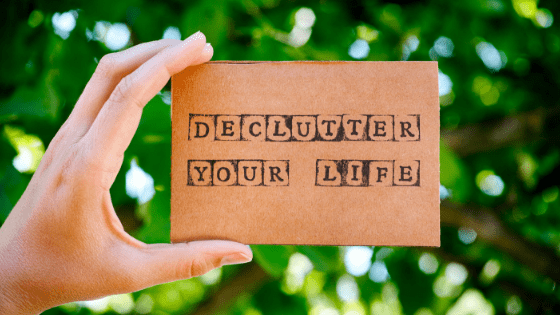
Emotions are unavoidable. As humans, we experience different emotions every single day. We can be happy and laughing one minute and feeling angry the next. Our emotions can have a massive impact on not just our mental well-being but our physical well-being as well. Because of this, we need to learn how to take control of them. That’s why you should read this Control Your Emotions and Feelings Guide to learn how.
When you choose to take control of your emotions, you will be taking away the power that they have over you. If you do not take control of them, it can lead to depression as well as personality disorders. Uncontrolled emotions can cause problems in our personal lives, at work, and home.
There are techniques that you can use to take control of your emotions, allowing you to calm yourself and handle any situation.
1. Know what your triggers are.
Everything that happens has a reason. You do not experience emotional outbursts for no reason. Start paying attention to the things that push you over the edge emotionally and cause you to lose control. Doing so will allow you to prepare for future situations ensuring that you do not let your emotions get the best of you.
2. Acknowledge what you are feeling.
You don’t have to pretend that you are not experiencing a specific emotion. If you are angry, acknowledge it and be willing to accept it. If you are sad, acknowledge it and be willing to accept it as well. Once you acknowledge your feeling, you will be able to figure out what is causing you to feel that way, and you will be able to control the emotion. Many times, uncontrollable emotions happen because a person tries to deny the feelings that they are having.
3. Change the situation.
Once you start to understand your emotions, you will be able to discover specific situations that cause you to lose control. You can avoid these situations or completely change them. For example, if you find that you lose control of your emotions every time you visit your mother, ask that she come to your home instead. You have changed the situation. You have put yourself in an environment that feels more comfortable to you, and if she starts to cause emotional upset, you can ask her to leave.
Or another option would be to call her on the phone instead of visiting. This way, if you start to feel that you’re losing control of your emotions, all you have to do is say, “Hey, I’ve got to go. I’ll talk to you later,” and hang up the phone.
4. Take a Step Back
Whenever you find yourself in a situation where you feel that you are going to react emotionally, you need to take a step back. Reacting emotionally without considering the consequences is the last thing that you want to do. When you are gripped by your emotions, you could say something that you will regret later.
Instead of allowing your emotions to take over, pause for a minute. Take a few deep breaths and let your heart rate to slow back to normal. Focus on clearing your mind and calming down. Once you have gained control of your emotions, you can address the situation.
If you are unable to gain control of your emotions after a few seconds walk away. There is no shame in walking away from a situation until you can handle it. Simply tell the other person that you cannot handle the situation right then, and you need a few moments. Take the time to gather your thoughts and calm down. Do not spend the time working yourself up even more because that will cause worse problems. Take control of your emotions and then go back o the situation.
5. Make the decision to do better.
Deciding to do better is a crucial choice. Once you have decided that you want to do better, you will find that it is easier to make those choices. Sure, everyone has a hard time when they are first starting, but if you are persistent, you will be successful.
By taking control of your emotions, you will be making deliberate choices when it comes to your behavior. You will no longer allow your emotions to control your behavior. Try to plan ahead if you know that you are going to face a difficult situation. Knowing how you want to react will help you maintain control and your composure.
6. Practice Meditation
Meditation is good for everyone, and it is one of the easiest things that you can do if you want to take control of your emotions. When you meditate, you are taking your focus from all the negative thoughts and feelings that you are having and shifting them to positive thoughts and feelings.
You can meditate anywhere and anytime. You can meditate at your desk before you talk to your boss, while you are waiting on customers, or while you are on hold. Just don’t meditate while you are driving. All you have to do is sit in a comfortable position and spend a couple of minutes meditating. Before you know it, your negative emotions will have flown right out the window.
7. Journal.
There is nothing healthy about suppressing your emotions. No matter how hard you try, they are going to burst through like a flood breaking a dam. Instead of trying to suppress your feelings, find a way to express them. Some people talk to a therapist. Other people box. Journaling is a great way to express those emotions in a way that will hurt no one.
Write down everything that happened and how you reacted to the situation. Write down how you would like to react to the situation if it were ever to happen again. Then write down all those pent-up emotions that you were holding back all day. By journaling, you don’t have to worry about hurting someone’s feelings or making someone angry. You don’t have to worry about anyone’s opinion. All you have to do is worry about getting all the negative out.
Instead of allowing extreme emotions to take control of you, it is time for you to start taking control of them. Don’t suppress them so that they build up and pour out like a flood, but instead, decide when you are going to release them and exactly how.



